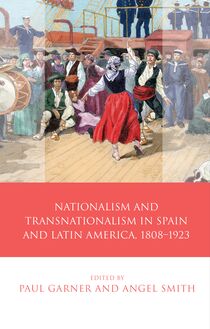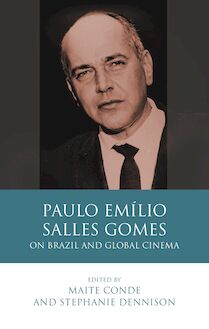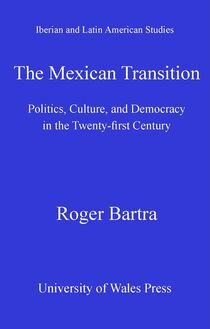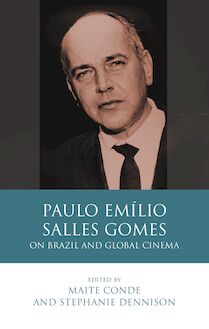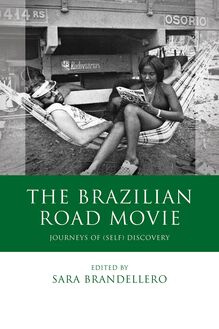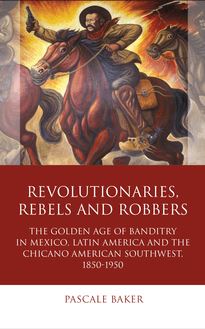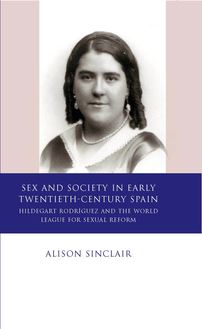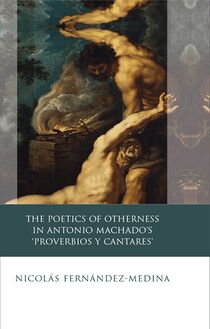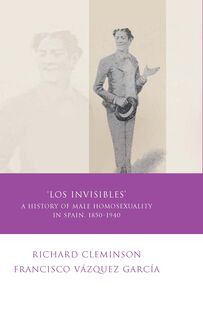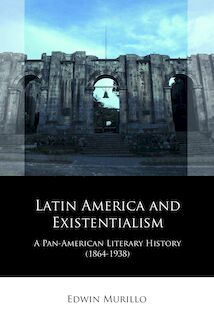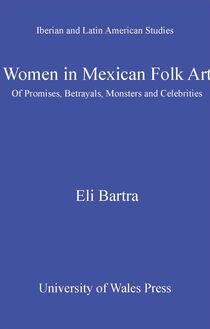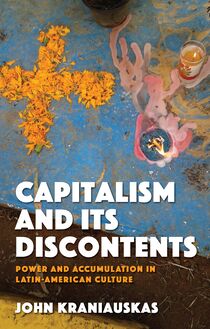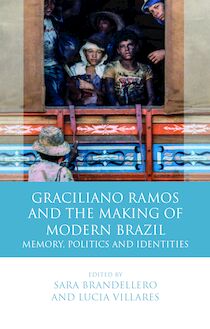Curating and the Legacies of Colonialism in Contemporary Iberia , livre ebook
188
pages
English
Ebooks
2022
Vous pourrez modifier la taille du texte de cet ouvrage
Obtenez un accès à la bibliothèque pour le consulter en ligne En savoir plus
Découvre YouScribe en t'inscrivant gratuitement
Découvre YouScribe en t'inscrivant gratuitement
188
pages
English
Ebooks
2022
Vous pourrez modifier la taille du texte de cet ouvrage
Obtenez un accès à la bibliothèque pour le consulter en ligne En savoir plus
Publié par
Date de parution
01 juin 2022
Nombre de lectures
1
EAN13
9781786838759
Langue
English
Combining postcolonial studies, curating and contemporary art, this book surveys the role played by artistic curatorship and contemporary art museums in the shaping of identities and cultural planning in contemporary Iberia. The book’s main hypothesis is that contemporary art has been pivotal in the construction of contemporary Iberia, a process marked by the attention paid (in heterogeneous, not always satisfactory ways) to the entanglement of the legacies of colonialism and the present-day status of Iberian territories as cosmopolitan societies now integrated in the European Union. It is argued that, at least from the 1990s, curating emerged as a key activity for Iberian societies to display and configure an image of themselves as modern and fully integrated in the European cultural landscape. Such an image, however, had to cope with the legacies of colonialism and the profound socioeconomic transformations of these societies. This book is concerned with bringing together, while redefining and expanding, Iberian and curatorial studies.
Acknowledgements
List of Illustrations
List of Contributors
Introduction: Fictions of Cosmopolitanism, Spectacles of Alterity. Curating and the (Un)Making of Coloniality in Contemporary Iberia. - Carlos Garrido Castellano and Bruno Leitão
Part I: Displaying Coloniality
Chapter 1: Remapping Disciplines, Displaying Possibilities. A Curatorial Studies-Based Approach to Iberian Studies. - Carlos Garrido Castellano
Chapter 2: Curatorial displacements in Spain before and after the 2000s: Coloniality tricks, exhibition eclipses and critical agencies. - Olga Fernández López
Chapter 3: The Exhibition as Representative Strategy for Cultural Diversity: Barcelona, 1992-2011. - Pep Dardanyà
Chapter 4: Displaying Postcolonial Spain. A Conversation between Juan Guardiola and Carlos Garrido Castellano. - Juan Guardiola, Carlos Garrido Castellano
Chapter 5: - Discourses of the Common Public Space: Identity, Memory and History in the Exhibitions of Autonomous Galicia. - Manuel Gago
Chapter 6: Curating Equatorial Guinea: Narratives of Spanish Colonialism in Central Africa as Told through Exhibitions. - Inés Plasencia Camps
Part II: Curating beyond Exhibition-Making
Chapter 7: What’s Someone Like You Doing in a Place Like This? Curatorial Processes, Ethno-Racial Agency and Coloniality in the Spanish State - Suset Sánchez Sánchez
Chapter 8: Négritude: Approximations of a Century of Artistic Relations between the Canary Islands and Africa - Adonay Bermúdez
Chapter 9: Visible Matters. A Short Exchange between Elvira Dyangani Ose and Carlos Garrido Castellano - Elvira Dyangani Ose
Chapter 10: The Gulbenkian Foundation’s Próximo Futuro Programme and the Challenges of Curating Difference - Bruno Leitão
Chapter 11: Documenting Postcolonial Curating. Thoughts on Buala One Decade On - Marta Lança
Part III: Insurgent Interventions
Chapter 12: Rumors: Representations: Revolutions - María Íñigo Clavo
Chapter 13: Between false steps and post-/decolonial recompositions in progress.
The Museum of Ethnology and World Cultures in Barcelona - Cristina Balma Tívola
Chapter 14: ARTifariti: an artistic, political and committed encounter with the Sahrawi people - Aurora Alcaide Ramírez
Chapter 15: Geopolitical Shifts and Diasporic Struggles in Former Metropolitan Territories - Nancy Garín, Antoine Silvestre
Chapter 16: Angolan Art: A Conversation on Curating, Archives, Coloniality and Diaspora - Paula Nascimento, Adriano Mixinge
Chapter 17: Insurgent Aesthetics: Creole Rap from the Outskirts of Lisbon - Otávio Raposo, Pedro Varela
Publié par
Date de parution
01 juin 2022
Nombre de lectures
1
EAN13
9781786838759
Langue
English
IBERIAN AND LATIN AMERICAN STUDIES
Curating and the Legacies of Colonialism in Contemporary Iberia
Series Editors
Professor David George (Swansea University)
Professor Paul Garner (University of Leeds)
Editorial Board
Samuel Amago (University of Virginia)
Roger Bartra (Universidad Aut noma de M xico)
Paul Castro (University of Glasgow)
Richard Cleminson (University of Leeds)
Catherine Davies (University of London)
Luisa-Elena Delgado (University of Illinois)
Maria Delgado (Central School of Speech and Drama, London)
Will Fowler (University of St Andrews)
David Gies (University of Virginia)
Gareth Walters (Swansea University)
Duncan Wheeler (University of Leeds)
Other titles in the series
Spain is different? Historical memory and the Two Spains in turn-of-the-millennium Spanish apocalyptic fictions Dale Knickerbocker
Blood, Land and Power: The Rise and Fall of the Spanish Nobility and Lineages in the Early Modern Period
Manuel Perez-Garcia
Fantastic Short Stories by Women Authors from Spain and Latin America: A Critical Anthology
Patricia Grac a and Teresa L pez-Pellisa
Carmen Mart n Gaite: Poetics, Visual Elements and Space
Ester Bautista Botello
The Spanish Anarchists of Northern Australia:Revolution in the Sugar Cane Fields
Robert Mason
Paulo Emilio Salles Gomes: On Brazil and Global Cinema
Maite Conde and Stephanie Dennison
The Tlatelolco Massacre, Mexico 1968, and the Emotional Triangle of Anger, Grief and Shame: iscourses of Truth(s)
Victoria Carpenter
The Contributors, 2022
All rights reserved. No part of this book may be reproduced in any material form (including photocopying or storing it in any medium by electronic means and whether or not transiently or incidentally to some other use of this publication) without the written permission of the copyright owner. Applications for the copyright owner s written permission to reproduce any part of this publication should be addressed to the University of Wales Press, University Registry, King Edward VII Avenue, Cardiff CF10 3NS.
www.uwp.co.uk
British Library CIP
A catalogue record for this book is available from the British Library.
ISBN 978-1-78683-873-5
eISBN 978-1-78683-875-9
The rights of the Contributors to be identified as authors of this work has been asserted in accordance with sections 77 and 79 of the Copyright, Designs and Patents Act 1988.
The publisher has no responsibility for the persistence or accuracy of URLs for any external or third-party internet websites referred to in this book, and does not guarantee that any content on such websites is, or will remain, accurate or appropriate.
Contents
Series Editors Foreword
Acknowledgements
List of Contributors
List of Illustrations
Introduction: Fictions of Cosmopolitanism, Spectacles of Alterity. Curating and the (Un)Making of Coloniality in Contemporary Iberia
Carlos Garrido Castellano and Bruno Leit o
Part I: Displaying Coloniality
1 Remapping Disciplines, Displaying Possibilities: A Curatorial Studies-Based Approach to Iberian Studies
Carlos Garrido Castellano
2 Curatorial Displacements in Spain before and after the 2000s: Coloniality Tricks, Exhibition Eclipses and Critical Agencies
Olga Fern ndez L pez
3 The Exhibition as Representation Strategy for Cultural Diversity: Barcelona, 1992-2011
Pep Dardany
4 Displaying Postcolonial Spain: A Conversation between Juan Guardiola and Carlos Garrido Castellano
Juan Guardiola and Carlos Garrido Castellano
5 Discourses of the Common Public Space: Identity, Memory and History in the Exhibitions of Autonomous Galicia
Manuel Gago
6 Curating Equatorial Guinea: Narratives of Spanish Colonialism in Central Africa as Told through Exhibitions
In s Plasencia Camps
Part II: Curating beyond Exhibition-Making
7 What s Someone Like You Doing in a Place Like This? Curatorial Processes, Ethno-Racial Agency and Coloniality in the Spanish State
Suset S nchez S nchez
8 N gritude : Approximations of a Century of Artistic Relations between the Canary Islands and Africa
Adonay Berm dez
9 Visible Matters: A Short Exchange between Elvira Dyangani Ose and Carlos Garrido Castellano
Elvira Dyangani Ose
10 The Gulbenkian Foundation s Pr ximo Futuro Programme and the Challenges of Curating Difference
Bruno Leit o
11 Documenting Postcolonial Curating: Thoughts on Buala One Decade On
Marta Lan a
Part III: Interventions
12 Rumours, Representations, Revolutions
Mar a igo Clavo
13 Between False Steps and Postcolonial/Decolonial Recompositions in Progress: The Museum of Ethnology and World Cultures in Barcelona
Cristina Balma-T vola
14 ARTifariti: An Artistic, Political and Committed Encounter with the Sahrawi People
Aurora Alcaide Ram rez
15 Geopolitical Shifts and Diasporic Struggles in Former Metropolitan Territories
Nancy Gar n and Antoine Silvestre
16 Angolan Art: A Conversation on Curating, Archives, Coloniality and Diaspora
Paula Nascimento and Adriano Mixinge
17 Insurgent Aesthetics: Creole Rap from the Outskirts of Lisbon
Ot vio Raposo and Pedro Varela
Notes
Series Editors Foreword
Over recent decades the traditional languages and literatures model in Spanish departments in universities in the United Kingdom has been superseded by a contextual, interdisciplinary and area studies approach to the study of the culture, history, society and politics of the Hispanic and Lusophone worlds - categories that extend far beyond the confines of the Iberian Peninsula, not only in Latin America but also to Spanish-speaking and Lusophone Africa.
In response to these dynamic trends in research priorities and curriculum development, this series is designed to present both disciplinary and interdisciplinary research within the general field of Iberian and Latin American Studies, particularly studies that explore all aspects of Cultural Production (inter alia literature, film, music, dance, sport) in Spanish, Portuguese, Basque, Catalan, Galician and indigenous languages of Latin America. The series also aims to publish research in the History and Politics of the Hispanic and Lusophone worlds, at the level of both the region and the nation-state, as well as on Cultural Studies that explore the shifting terrains of gender, sexual, racial and postcolonial identities in those same regions.
Acknowledgements
This book is the result of a long-term collaborative endeavour spanning several continents and cultural institutions. An event on curating and coloniality organised in 2017 in Hangar (Lisbon) triggered the conversations that opened the way to the present book. We would like to thank the Hangar staff as well as all the participants in that seminar, including the colleagues who contributed to the discussion even before the conception of this volume. This book would not be possible without the previous critical discussions arising in the context of the Peninsula research group, a flexible platform critically addressing issues of cultural creativity and coloniality created in Madrid in 2012. Thanks to the Centro de Estudos Comparatistas in Lisbon University and to University College Cork for providing the support that made possible this project. Thanks to Pat for her patience and support in the process of proof-reading and preparing the final version of this volume. Thanks to Sarah Lewis and the editorial team at University of Wales Press who provided continuous support along the way. Finally, our most sincere gratitude goes to all the visual art practitioners, curators and scholars who joined us in this adventure.
List of Contributors
Carlos Garrido Castellano is Lecturer in Spanish, Portuguese and Latin American Studies at University College Cork. He is author of Beyond Representation in Contemporary Caribbean Art: Space, Politics, and the Public Sphere (2019), Art Activism for an Anticolonial Future (2021) and Literary Fictions of the Contemporary Art System (2022).
Bruno Leit o is an independent curator based in Madrid and Lisbon. He is a board member and Curatorial Director at Hangar - Center for Artistic Research in Lisbon. He has a degree in Fine Arts (ESAD-CR) and a Postgrad in Curatorial Studies (FBAUL/Calouste Gulbenkian Foundation). Currently, Leit o is associate curator for the 7th Lubumbashi Biennale (Democratic Republic of the Congo).
Olga Fern ndez L pez is an associate professor at the History and Theory of Art Department of Universidad Aut noma de Madrid, and teaches contemporary art history and curatorial studies. Her research focuses on the specificities of the exhibition medium and its critical possibilities for curatorial practice. She has published Exposiciones y comisariado. Relatos cruzados (Madrid: C tedra, 2020) and several articles on the history of exhibitions. She has curated One Thousand Roaring Beasts: Exhibitions Devices for a Critical Modernity (Centro Andaluz de Arte Contempor neo, 2017). She has co-convened the course Coloniality, Curating and Contemporary Art (Universidad Internacional de Andaluc a, 2012) and the Conference Cold Atlantic. Cultural War, Dissident Artistic Practices, Networks and Contact Zones at the Time of the Iron Curtain (Museo Reina Sof a, 2016). She worked between 2001 and 2006 as curator at the Museo Patio Herreriano (Valladolid, Spain).
Pep Dardany is a visual artist and an anthropologist and cultural manager based in Barcelona. Dardany taught at the Escola Massana in Barcelona, in the Master of Curational and Cultural Practices in Art at the MECAD/ESDI and of Art and Anthropology at Elisava School. He is co-founder of the company TAT. Cultural Spaces, a company for the design, production and display of exhibitions. From 2005 until 2013 he directed Can Xalant. Centre of Creation and Contemporary Thought in Matar , Barcelona.
Juan Guardiola (1965) graduated in Art History from the Autonomous University of Madrid and did his doctoral studies in Contemporary Art at the Complutense Universi

